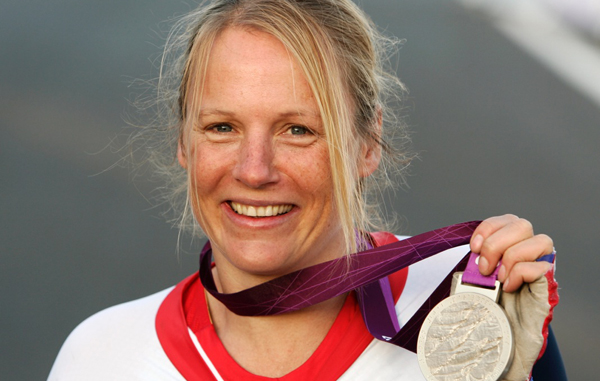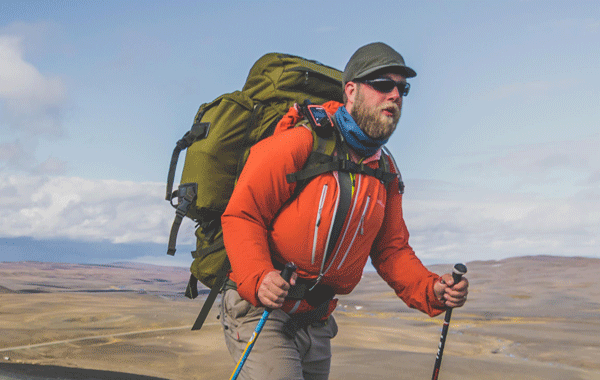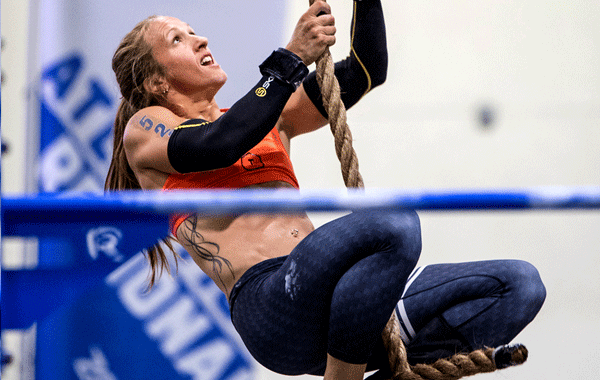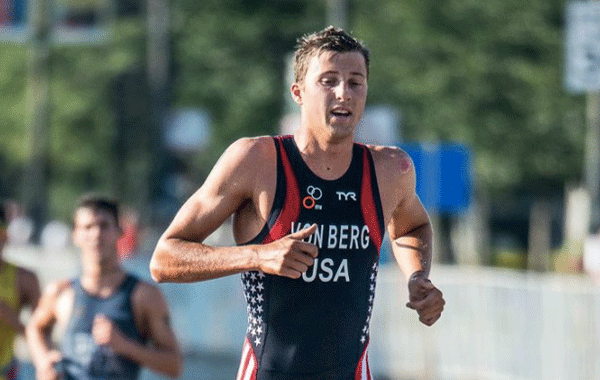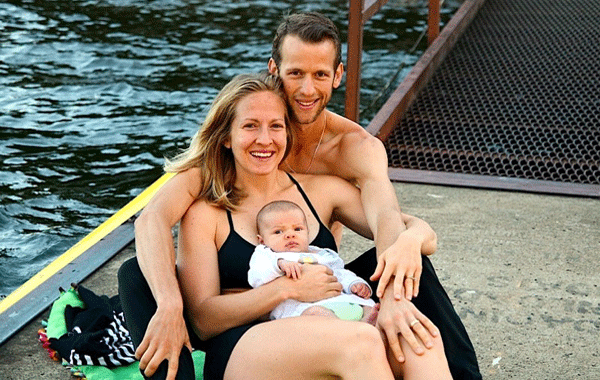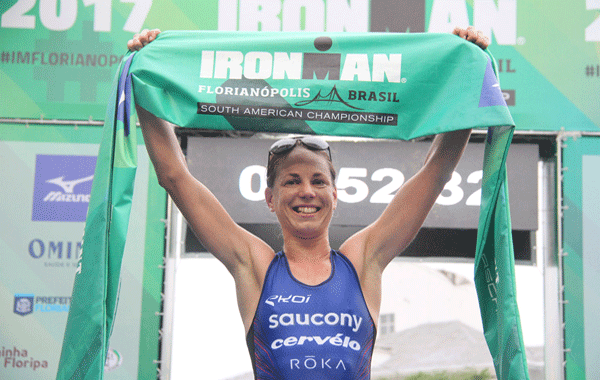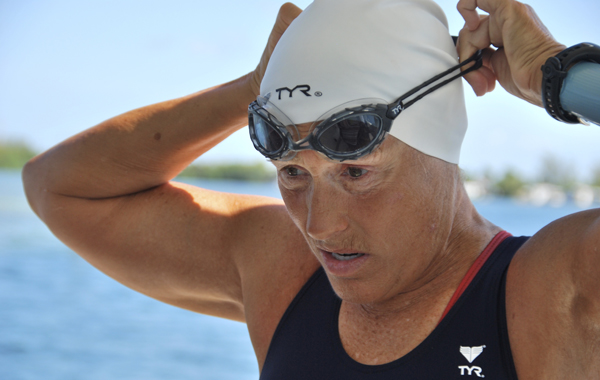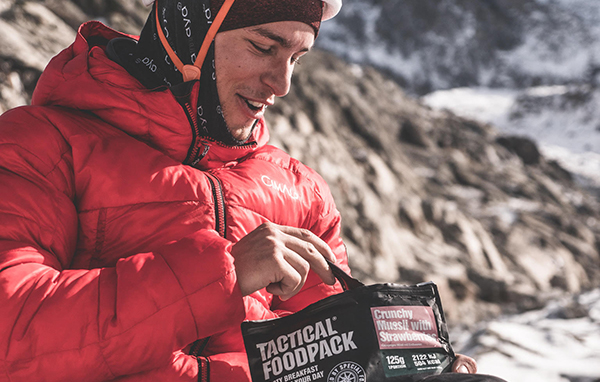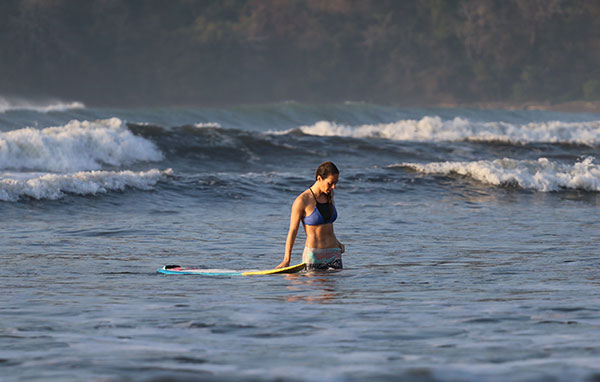
Neil Fachie had his sights set on pushing the speeds a human can reach ever since the age of ten.
NEIL FACHIE found his passion in childhood and honed in on his talent for athletics by the age of ten. He continued to compete up to his university years and it was then that he first got selected to represent Team GB and began to star on the world stage. He has gone on to compete just as a sprint runner but also as a track cyclist.
Neil has gone on to take a Gold and two Silvers at the Paralympics as well as a number of Gold Medals at the Track World Championships.
He is the founder of www.lnfcoaching.co.uk which offers free guides, coaching and nutrition advice, and is currently training hard to defend two world titles and win back one very special one at the 2020 Tokyo Paralympics.
When did you first find your talent for sport and what some of the first ever sports you competed in?
I tried all kinds of sports when I was young. I had a lot of energy to burn off, and was always quite competitive, so sport seemed like the ideal solution. I gave everything a go, swimming, gymnastics, trampolining, even fencing! But eventually it was athletics that I found. I loved the freedom of just going as fast as you can. I ran everywhere, so turning it in to a race was a no-brainer. I joined my local athletics club at the age of ten, and took part in my first race just two weeks later, the 60m sprint. I fell in love and that became my sport for the next 14 years.
Tell us about university life and how you started to compete, and
discover your natural talent, on the athletes field and in cycling?
I decided to stay at home for University in Aberdeen. I regret staying at home as I think the life education you get from moving out at that age is important. The financial, and domestic, benefits were pretty clear though. It was during my degree in Physics that I started taking my sport even more seriously. Maybe this was to get a break from the horrendously hard lectures! I joined up with the University athletics team as well as still competing for my local club. As I was about to enter my final year at Uni I was presented with the opportunity of training alongside the British Athletics Paralympic Development Team. I was born with a degenerative eye condition, but had never looked in to Para Sport as an option. This was purely due to lack of awareness.
I jumped at the chance though and managed to qualify for the 2006 World Championships. This fell just after my final exams. Its safe to say I struggled my way through my final year and in particular final exams, the lure of full time sport was too great. I managed to get my degree though and then took up sport full time from that point, albeit on a very low level of development funding at the time. Those champs went pretty well, finishing sixth and seventh in my events, the 100m and 200m.

Neil Fachie has become used to used to giving big performances on the world stage.
How soon was it that you were called up to represent the national side
and how did you feel when you first joined your fellow countrymen on
the world stage?
I had been involved in athletics for 12 years before getting that initial call up. But honestly I’d never been aiming for international athletics prior to that. So for it to happen in the manor it did was quite challenging. What had been my hobby for so many years was now my career, and I found that quite difficult to get my head around. Being presented with my first GB running vest was really special though. I felt immensely proud wearing it, and I loved being part of the team. So many great characters and inspirational stories.
Following the Beijing Paralympic Games in 2008 I unfortunately lost my funding from British Athletics. At the time this felt like it was the end of the world for me. I had just experienced the massive high of my first Games, and had fallen in love with it all. I also knew that a home Games in London was just four years away and I wanted to be involved more than anything. At that point I decided I was going to try every sport until I found one I might be good enough at just to get selected. As a lifelong fan of track cycling, that was the sport I tried first. It turns out that was the sport I should’ve been doing all along. I started training for cycling in November 2008, and in May 2009 made my first international appearance. It was a ridiculously quick turnaround.
Out of all those Golds you’ve taken in World Championships, which few
stand out the most?
That is a tricky one. I have been really fortunate over the years to have had a lot of success at World Championships. I’m not at 12 golds and three silver medals. My favourite 2 are my most recent however. The journey to earning those was a tough one. In 2016 at the Paralympic Games in Rio I was overwhelming favourite to win Gold. On the day however, I was beaten by the better bike, taking the silver. This was a crushing blow and at the time I felt like a complete and utter failure. At the World Championships that followed I came away with two more silver medals. I felt like maybe this was the beginning of the end of my sporting career. I seriously considered giving up at that point, it was all getting to be too tough both physically and mentally.
I decided to give it one last crack though and put in a serious amount of work through the whole of 2017. At the 2018 World Champs, back in Rio of all places, I got my redemption. Not only did I win double gold, but I also clocked a time that would’ve been good enough to win Gold at the Paralympics just 18 months before. It felt to me like I had made up for that painful defeat.
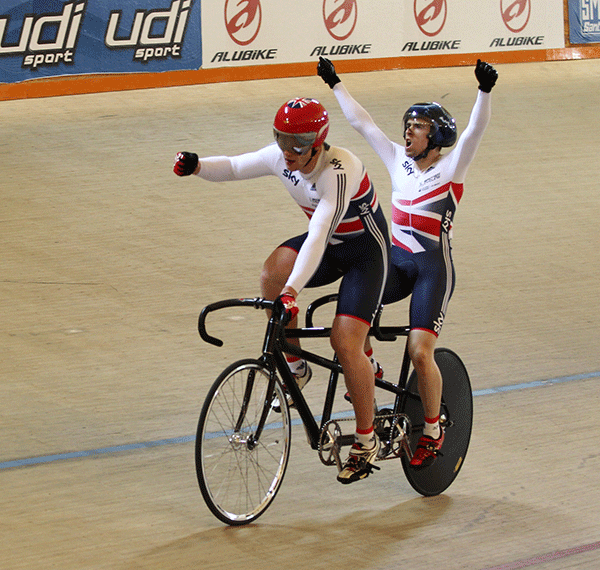
Neil Fachie celebrates victory once again.
Tell us about your incredible Gold at the Paralympics and your overall
experience of competing in the Games?
Winning gold at the London 2012 Games was beyond my wildest dreams. As I mentioned previously, losing my funding after the Beijing Games in 2008 was heartbreaking. My dream became somehow making it to the Games in London, I certainly had no ambitions of being a medal contender. In cycling things happened so quickly though, my rate of progression in the sport really caught me by surprise. By the time London came around I’d won 4 World Championship titles and broken two World Records. The way it panned out though, It was my teammate who went to the Games as favourite. In British Cycling’s eyes, I was a contender, but most likely for silver. I was just the motivation I needed. In the 1km Time Trial I smashed the World Record and took Gold. From my loss of funding just four years previously to Paralympic Champion, it was beyond my wildest dreams.
The crowd were immense. The design of the velodrome is such that the noise channels down on to the track. As a home rider you felt like the roof was going to blow off. Standing on top of that podium while the stadium belted out the National Anthem was surreal. Unforgettable. For those two weeks, we were rockstars. Whenever I went out and about I was instantly recognised and people would start asking for autographs and pictures. As a Paralympic Athlete this was something I had never experienced before. I loved every second, but am grateful that I can slip back into being as unrecognisable as anyone else on a day-to-day basis, it was exhausting!
How hard are you currently training and will you be competing in the near future?
I’m currently in my off season, unfortunately this doesn’t mean I’m on a break. Far from it, training is as tough as ever, six days a week with two sessions most days. I will be aiming to defend my two World Titles at the World Championships in the Netherlands in March 2019, and then my sights are set on the Tokyo Paralympic Games in 2020. I want my title back! Beyond that I’m not sure, I may carry on, I may not.
Tell us about the idea behind LNF Coaching (www.lnfcoaching.co.uk) and your role in the organisation today?
During that spell after the 2016 Paralympics, where I wondered if my sporting career was coming to an end, I realised that I had nothing lined up as a career post-cycling. I felt pretty lost and scared by that. I started reading a lot more books about business and life coaching, and quickly realised that I’d actually developed a lot of skills through my time in international sport. I’d learned how to devise and execute a plan to become the best in the world at something. I’d learned how to stay at the top of my game for almost a decade (hopefully more than if I can keep going!). I had built a team of experts, who are there to support me in achieving my full potential. I realised that I could share these lessons and insights with others, regardless of their industry.
Our goal is to help our clients face their limitations, frustrations, pain and setbacks, and rise above them to achieve a personal best or world record of their own. In business and sport its not always the most talented individuals who make it to the top. But with the right guidance, and with some self-belief, we are all capable of achieving more, and taking that final step. I truly believe that when the worlds of performance sport and business come together, amazing things can happen.

Neil has titles to defend on one to win back in the events he is currently training for.
What would your words of advice be to all those put of by a sportbecause they feel a disability or illness will prevent them from ever
making it to the top?
For me sport was a tremendous way to bring me out of my shell. I was an extremely shy child, and school wasn’t necessarily the best environment for me when it came to socialising. I made a lot of friends at athletics though, and I just found it fun. At around the age of 13, a lot of other kids developed quicker than me. For the next 4 years I finished last in almost every single race I did. But I still adored going along to training four to five times a week. I couldn’t get enough! The social aspect, and just trying to improve on my bests, were all I needed.
The truth is, there are always people who are willing to help, regardless of your ability or physical issues. That initial step in committing to try something new is always the hardest. As humans we are programmed to not try things that scare us. Our primitive brains are trying to protect us from doing something that might kill us. This is something we are stuck with from the time when humans could be killed by any number of things in the wild. These days the likelihood of us being mauled to death by a wild beast by trying a new sport is slim. Unfortunately our brain still likes to protect us though, and so advises us not to try anything new just in case. Its time you ignored that part of your brain and start living your life!

